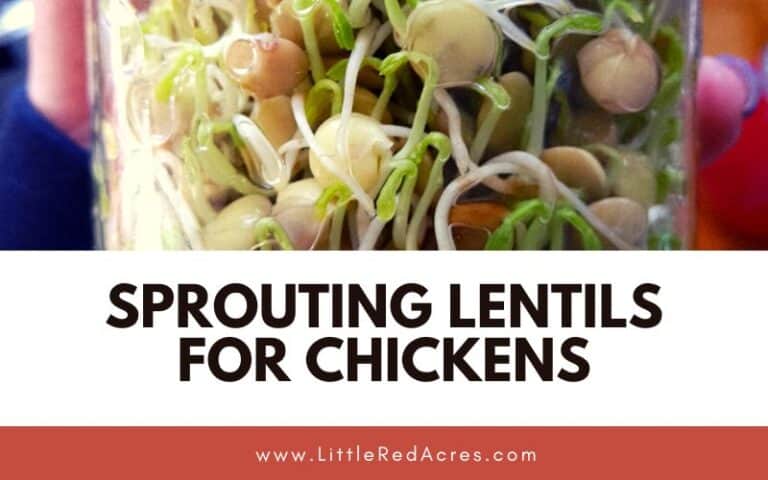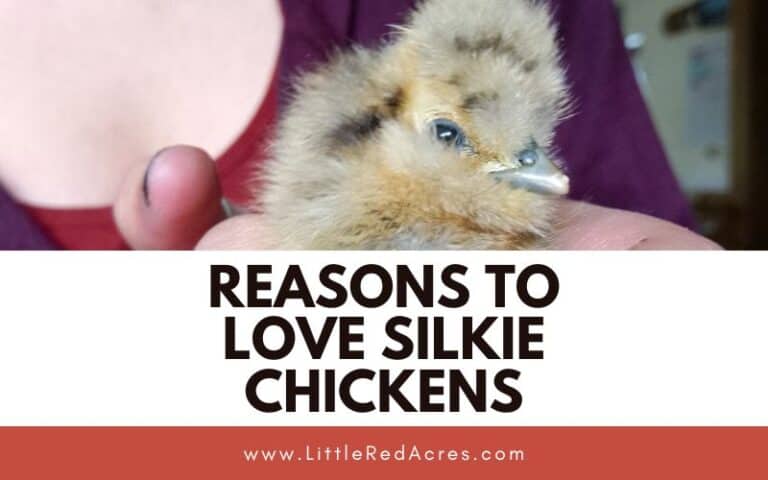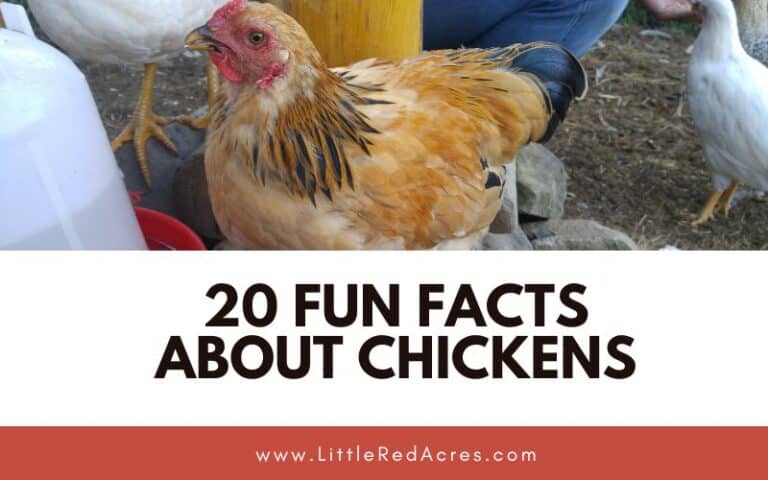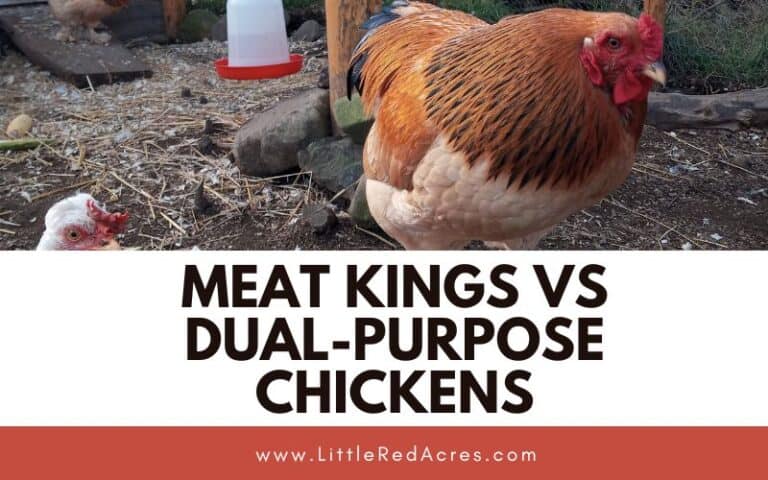Pasty Butt in Chicks: What You Need to Know
Inside: Learn about pasty butt in chicks – its causes, treatment, and prevention. Keep your adorable feathered friends healthy and happy!
When raising baby chicks, one of the common issues that can arise is pasty butt. This condition, also known as “pasting up,” occurs when feces stick to the vent area of a chick, causing a blockage that can lead to serious health problems if left untreated. However, with proper care and attention, pasty butt is easily manageable, and in most cases, preventable.
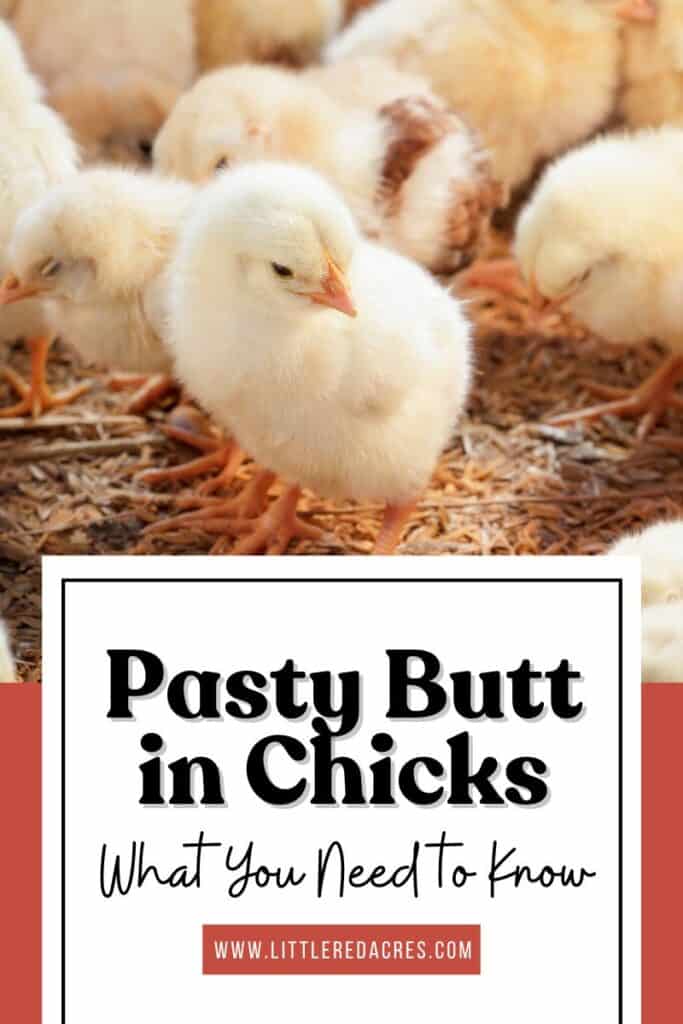
This post may contain affiliate links, see my disclosure policy for more information.
Pasty Butt in Chicks
Pasty butt is a condition in which feces become stuck to the vent (the external opening of the chick's digestive and reproductive tracts) and create a blockage. This blockage prevents the chick from excreting waste properly, leading to a potentially dangerous situation.
Get updates & freebies delivered to your inbox!
Causes of Pasty Butt in Chicks
I have been raising chicks for a few years now and we still get a chick with a pasty butt here and there. It really isn't the end of the world if you catch it right away. You'll catch it if you are taking care of your chicks, giving them fresh water, and making sure they have food and water.
Several factors contribute to this in chicks, including:
Stress: Environmental stressors, such as temperature fluctuations, overcrowding, or loud noises, can lead to digestive disturbances in young chicks.
Diet: Improper nutrition, sudden diet changes, or the lack of access to clean water can lead to gastrointestinal issues.
Poor Hygiene: Dirty brooder conditions can increase the chances of feces sticking to the vent area.
Weak Chicks: Some chicks may be inherently weaker or have genetic predispositions to digestive problems.
Treatment of Pasty Butt
If you notice a pasty butt in any of your chicks, it's essential to address it promptly to prevent potential complications. Here's how to treat pasty butt in chicks:
Gentle Cleaning: Take a damp, warm cloth or cotton ball and carefully clean the vent area to remove the dried feces. Be gentle to avoid causing any harm.
Warm Bath: In more severe cases, a warm bath might be necessary to soften the feces before gently wiping it away. Make sure the water is not too hot, and dry the chick thoroughly afterward.
Keep the Brooder Clean: Maintain a clean brooder environment by changing bedding regularly and keeping food and water containers clean.
Hydration: Ensure that chicks have access to clean, fresh water at all times to prevent dehydration.
Keep a close eye on the affected chick to ensure that the condition improves.
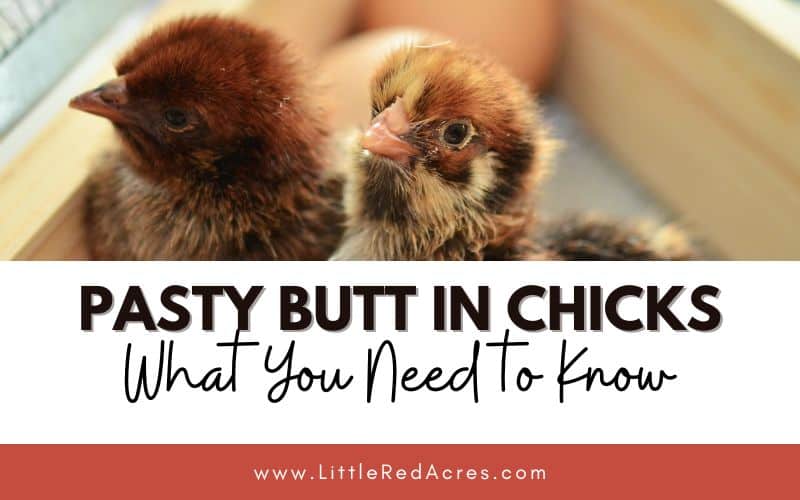
Prevention of Pasty Butt
Taking preventive measures can significantly reduce the occurrence of pasty butt in chicks:
Optimal Brooder Conditions: Provide a warm, dry, and draft-free environment for the chicks, ensuring they have enough space to move around comfortably.
Proper Nutrition: Offer a balanced, commercial chick starter feed specifically formulated for their age and breed. Avoid sudden diet changes.
Adequate Hydration: Always provide clean and fresh water, and ensure chicks are drinking regularly.
Low-Stress Environment: Reduce noise and disturbances in the brooder area, as stress can contribute to digestive issues.
Pasty butt in chicks is a common but manageable condition that requires prompt attention and proper care. By providing a clean and nurturing environment, a balanced diet, and attentive monitoring, you can keep your chicks healthy and prevent the occurrence of it. Remember, early detection and treatment are crucial to the well-being of your feathered friends.
You won't deal with this every time you hatch or raise chicks, and just because you see a tiny bit of poop stuck to your chick's butt fluff, doesn't mean you are dealing with pasty butt. Just clean it up, and make sure you are taking the preventative measures.
Want More?
What Causes Baby Chicks to Die
Methods for Determining the Sex of Chicks

